Ya Zhou
Bridging Performance Gaps for Foundation Models: A Post-Training Strategy for ECGFounder
Sep 16, 2025Abstract:ECG foundation models are increasingly popular due to their adaptability across various tasks. However, their clinical applicability is often limited by performance gaps compared to task-specific models, even after pre-training on large ECG datasets and fine-tuning on target data. This limitation is likely due to the lack of an effective post-training strategy. In this paper, we propose a simple yet effective post-training approach to enhance ECGFounder, a state-of-the-art ECG foundation model pre-trained on over 7 million ECG recordings. Experiments on the PTB-XL benchmark show that our approach improves the baseline fine-tuning strategy by 1.2%-3.3% in macro AUROC and 5.3%-20.9% in macro AUPRC. Additionally, our method outperforms several recent state-of-the-art approaches, including task-specific and advanced architectures. Further evaluation reveals that our method is more stable and sample-efficient compared to the baseline, achieving a 9.1% improvement in macro AUROC and a 34.9% improvement in macro AUPRC using just 10% of the training data. Ablation studies identify key components, such as stochastic depth and preview linear probing, that contribute to the enhanced performance. These findings underscore the potential of post-training strategies to improve ECG foundation models, and we hope this work will contribute to the continued development of foundation models in the ECG domain.
Multi-scale Masked Autoencoder for Electrocardiogram Anomaly Detection
Feb 08, 2025



Abstract:Electrocardiogram (ECG) analysis is a fundamental tool for diagnosing cardiovascular conditions, yet anomaly detection in ECG signals remains challenging due to their inherent complexity and variability. We propose Multi-scale Masked Autoencoder for ECG anomaly detection (MMAE-ECG), a novel end-to-end framework that effectively captures both global and local dependencies in ECG data. Unlike state-of-the-art methods that rely on heartbeat segmentation or R-peak detection, MMAE-ECG eliminates the need for such pre-processing steps, enhancing its suitability for clinical deployment. MMAE-ECG partitions ECG signals into non-overlapping segments, with each segment assigned learnable positional embeddings. A novel multi-scale masking strategy and multi-scale attention mechanism, along with distinct positional embeddings, enable a lightweight Transformer encoder to effectively capture both local and global dependencies. The masked segments are then reconstructed using a single-layer Transformer block, with an aggregation strategy employed during inference to refine the outputs. Experimental results demonstrate that our method achieves performance comparable to state-of-the-art approaches while significantly reducing computational complexity-approximately 1/78 of the floating-point operations (FLOPs) required for inference. Ablation studies further validate the effectiveness of each component, highlighting the potential of multi-scale masked autoencoders for anomaly detection.
Knowledge-Guided Dynamic Modality Attention Fusion Framework for Multimodal Sentiment Analysis
Oct 06, 2024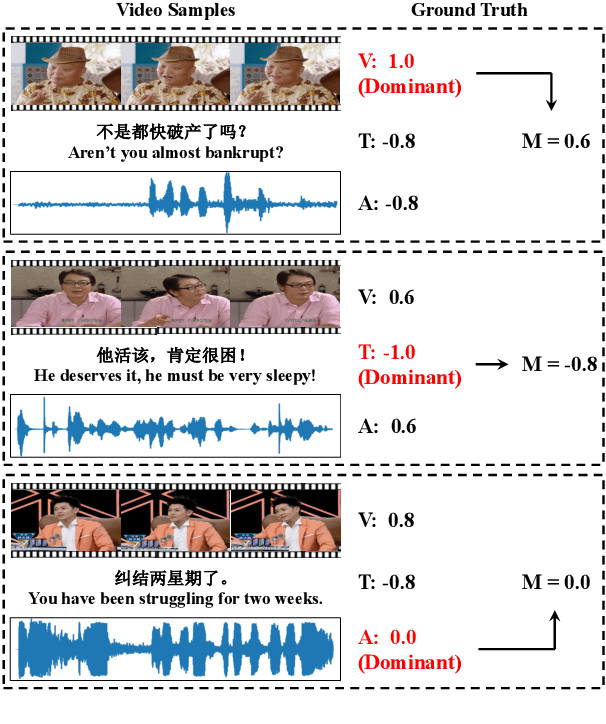

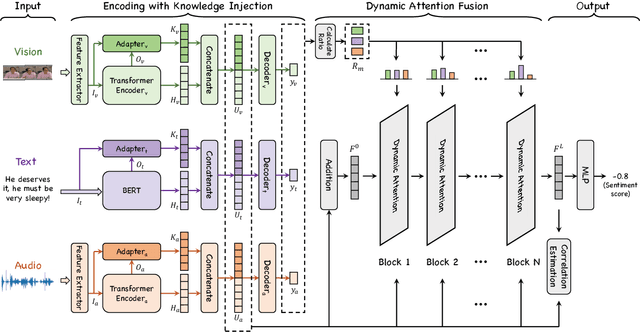
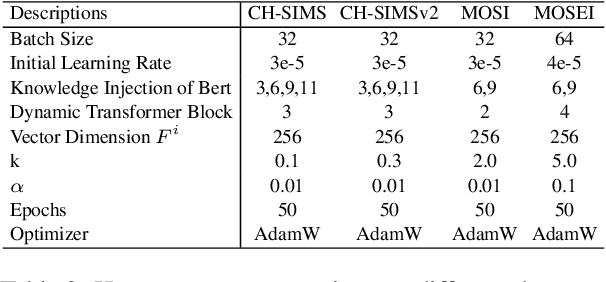
Abstract:Multimodal Sentiment Analysis (MSA) utilizes multimodal data to infer the users' sentiment. Previous methods focus on equally treating the contribution of each modality or statically using text as the dominant modality to conduct interaction, which neglects the situation where each modality may become dominant. In this paper, we propose a Knowledge-Guided Dynamic Modality Attention Fusion Framework (KuDA) for multimodal sentiment analysis. KuDA uses sentiment knowledge to guide the model dynamically selecting the dominant modality and adjusting the contributions of each modality. In addition, with the obtained multimodal representation, the model can further highlight the contribution of dominant modality through the correlation evaluation loss. Extensive experiments on four MSA benchmark datasets indicate that KuDA achieves state-of-the-art performance and is able to adapt to different scenarios of dominant modality.
Masked Transformer for Electrocardiogram Classification
Aug 31, 2023Abstract:Electrocardiogram (ECG) is one of the most important diagnostic tools in clinical applications. With the advent of advanced algorithms, various deep learning models have been adopted for ECG tasks. However, the potential of Transformers for ECG data is not yet realized, despite their widespread success in computer vision and natural language processing. In this work, we present a useful masked Transformer method for ECG classification referred to as MTECG, which expands the application of masked autoencoders to ECG time series. We construct a dataset comprising 220,251 ECG recordings with a broad range of diagnoses annoated by medical experts to explore the properties of MTECG. Under the proposed training strategies, a lightweight model with 5.7M parameters performs stably well on a broad range of masking ratios (5%-75%). The ablation studies highlight the importance of fluctuated reconstruction targets, training schedule length, layer-wise LR decay and DropPath rate. The experiments on both private and public ECG datasets demonstrate that MTECG-T significantly outperforms the recent state-of-the-art algorithms in ECG classification.
CP Degeneracy in Tensor Regression
Oct 22, 2020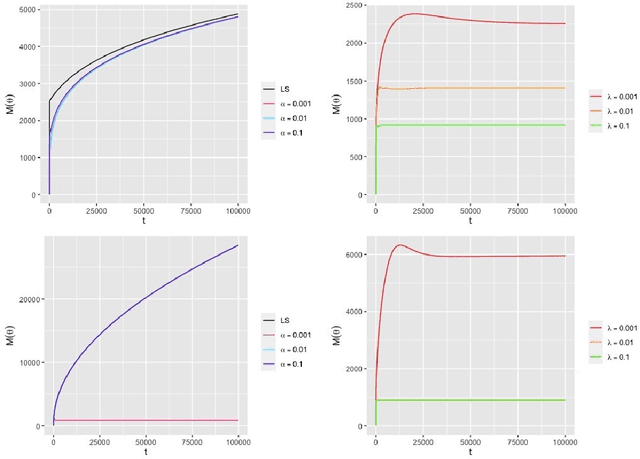
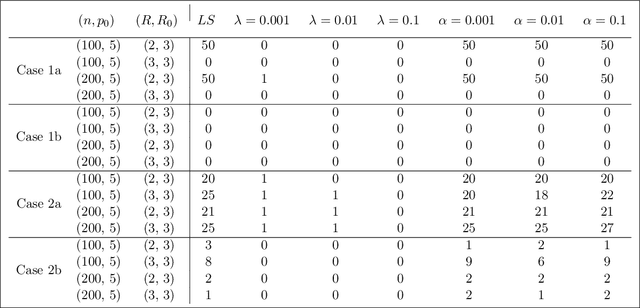
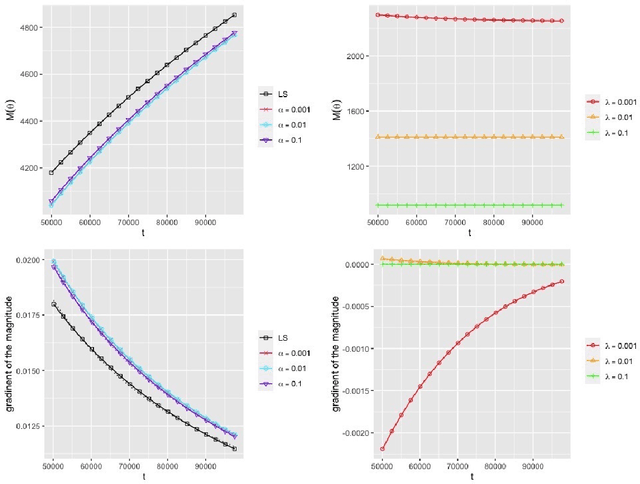
Abstract:Tensor linear regression is an important and useful tool for analyzing tensor data. To deal with high dimensionality, CANDECOMP/PARAFAC (CP) low-rank constraints are often imposed on the coefficient tensor parameter in the (penalized) $M$-estimation. However, we show that the corresponding optimization may not be attainable, and when this happens, the estimator is not well-defined. This is closely related to a phenomenon, called CP degeneracy, in low-rank tensor approximation problems. In this article, we provide useful results of CP degeneracy in tensor regression problems. In addition, we provide a general penalized strategy as a solution to overcome CP degeneracy. The asymptotic properties of the resulting estimation are also studied. Numerical experiments are conducted to illustrate our findings.
Prior-enlightened and Motion-robust Video Deblurring
Mar 26, 2020



Abstract:Various blur distortions in video will cause negative impact on both human viewing and video-based applications, which makes motion-robust deblurring methods urgently needed. Most existing works have strong dataset dependency and limited generalization ability in handling challenging scenarios, like blur in low contrast or severe motion areas, and non-uniform blur. Therefore, we propose a PRiOr-enlightened and MOTION-robust video deblurring model (PROMOTION) suitable for challenging blurs. On the one hand, we use 3D group convolution to efficiently encode heterogeneous prior information, explicitly enhancing the scenes' perception while mitigating the output's artifacts. On the other hand, we design the priors representing blur distribution, to better handle non-uniform blur in spatio-temporal domain. Besides the classical camera shake caused global blurry, we also prove the generalization for the downstream task suffering from local blur. Extensive experiments demonstrate we can achieve the state-of-the-art performance on well-known REDS and GoPro datasets, and bring machine task gain.
 Add to Chrome
Add to Chrome Add to Firefox
Add to Firefox Add to Edge
Add to Edge